Contents
What Are They?
A secured credit card is a credit card that has been secured with a cash deposit. Most card issuers will give applicants a credit limit that is equal to the cash deposit. E.g if an applicant puts down a cash deposit of $500 they’ll be given a credit limit of $500.
In some cases the credit limit will be higher than the cash deposit, this is called a partially secured credit card. The availability of these partially secured credit cards has always been low.
Some card issuers will allow their card holders to earn interest on their security deposit, whilst others won’t. Similarly only some cards have rewards programs.
[Read: What Are The Easiest Credit Cards To Get]
How Do They Work?
Secured cards work the same as regular credit cards, when a purchase is made the amount of available credit is reduced. When this money is repaid the amount of credit available increases. For example, if the credit limit is $500 and the card holder makes a purchase for $100 they now have $400 in available credit. If they pay $100 back the amount available increases to $500 again.
Secured card holders are required to make minimum monthly payments and can be faced with late fees if these aren’t paid on time. The only difference between a secured and unsecured credit card is that secured credit cards require a security deposit.
Why Are They Popular?
Secured cards are popular because they require little to no credit history, which makes them an ideal first card for consumers. These cards are also available to those who have bad/terrible credit and are often used by these consumers to prove to creditors that they can now manage their credit efficiently.
What To Look For?
Before applying for one of these cards it’s extremely important to do research. Due to the target market being unable to be approved for a regular credit card, applicants often think they have very little choice and have to accept exorbitant fees and other unfair terms. In reality there are 20+ secured credit cards currently on the market – all of which are available to consumers with no or bad credit history. Here are some key features that applicants should look out for:
- No application fee. Card issuers should not charge an application fee for a secured credit card.
- Low to no annual fee. Consumers should look for cards which have a low or no annual fee. Not only is paying a lot of money for an annual fee a waste, it also means when it’s time to upgrade to an unsecured card consumers will cancel their secured card to avoid the fee. This’ll cause card holders average age of accounts and oldest account to drop off their credit report after seven years.
- Report to the three credit bureaus. The main purpose of these cards is to improve or create credit history, this is not possible if the card issuer doesn’t report to Equifax, TransUnion & Experian.
- Ability to add funds to increase the credit limit. Applicants should know which cards allow them to add funds to their security deposit and which don’t. Credit limits on future cards are often based on the credit limit of the the applicants current cards. This means having a secured card with a high limit will lead to future high credit limits.
- Graduation to an unsecured card. The end goal of having a secured credit card is to improve ones credit to the stage where they’ll be approved for a an unsecured card. Some card issuers make this easier and will automatically upgrade card holders to an unsecured product after twelve months (thus releasing the security deposit), whilst other issuers never unsecured their secured products.
Best Cards
Below are our five favorite secured cards, along with links to our in depth reviews for each card. If you’d like to look at over 21+ cards, we suggest reading our best secured credit card article.
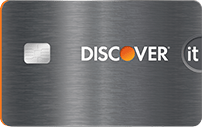 Why we love this card:
Why we love this card:
It has no annual fee or application fee. It reports to all of the major credit bureaus, graduates to an unsecured card and you can add funds to increase your credit limit. It also comes with 1% cash back on all purchases (and 2% for gas & groceries with a $1,000 quarterly limit). Oh and as a sign up bonus it offers double cash back for the first year. Pretty much the rolls royce of secured cards.
Apply now or read the full review.
2. Harley-Davidson® Visa® Secured Card
It has no annual fee, no application fee, it’s available to everybody and reports to the three major credit bureaus. It also has a rewards program which allows consumers with bad/no credit to earn “Chrome cash” which can be used to purchase Harley-Davidson products. It graduates to an unsecured card and it’s possible to add funds to increase the credit limit. Card holders also earn interest on their security deposit. It’s backed by US bank and Visa, meaning it’s accepted anywhere Visa is accepted.
Apply now or read the full review.
3. BankAmericard® Secured Credit Card
The best feature of this card is that you can add BoA’s cash rewards program to it, which is 1% cash back on all purchases, 2% for grocery stores and 3% at gas stations. It’s annual fee of $39 is more than reasonable, especially for those making big purchases. It reports to all three credit bureaus and BoA graduates most card holders to an unsecured card after 12 months. It’s also a Visa card, so it’s accepted almost anywhere.
Apply now or read the full review.
[Read: Visa Secured Credit Cards]
4. DCU Visa Platinum Secured Credit Card
It has no annual fee, no application fee and is a Visa card so it’s accepted almost everywhere. It also reports to Equifax, TransUnion & Experian. The only downside to this card is that you must be a member of DCU to be eligible and this’ll cost you at least $15 per year in donations to charities.
Apply now or read the full review.
5. Navy Federal nRewards Secured Card
It has no annual fee, no application fee and is also a Visa card. It also has a great rewards program which is worth 1¢ per $1 spent in prepaid visa gift cards when you redeem 7,500 points or more. As always, it reports to the three major credit bureaus. The only reason it’s not #1 is that it’s only available to active or ex military members.
Apply now or read the full review.
It’s also worth considering using the shopping cart trickhttps://www.doctorofcredit.com/shopping-cart-trick-get-credit-cards-without-the-hard-pull/ if you have bad credit, as no hard pull is done they will approve almost anybody.

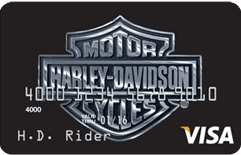
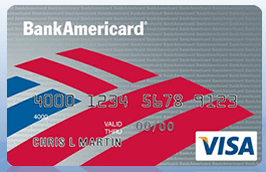
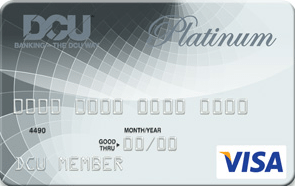
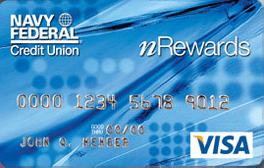
Hello William Charles !
William Charles !
I had an interesting situation I ran into over the weekend. I signed up for a secured card & was approved. Then, 2 weeks after the original approval, I was denied b/c my bank account (A Chase Liquid – Prepaid account) can’t transfer money to them through ACH… My question is if you had any experience with cards that I can have another funding option to get it started?
It really stinks, my credit can’t get me a legitimate checking account, yet I need a checking account to transfer money to a secured CC, to build my credit up. Does this make sense?
Are there any options you’re aware of?
Thank you,
Tim
You should be able to get access to a second chance checking account. In addition places like Chase don’t use Chexsystems so you might be able to get a checking account with them.
Hi again William, I got denied because the current address doesn’t match credit report they used so they asked utility bill or anything bearing my name under the current address which I don’t have because I still live outside the US. Is there a way to get around it?
I filed chapter 13 back in 2014. Which secured card should I apply for?
None. You were not able to manage money in the past. Stay away from credit cards and rather learn with cash.
Thank you – I’ll give it a shot and let you know how it goes.
Hi William,
I’d like to rebuild my credit. Due to he financial crisis back in 2009 I owe a lot of money to BofA and US bank. I moved to another country in 2009 and never contacted either one. To this date I never heard from them (I still have a US address but it’s different than the one they had). Crossing my fingers, I am never aware of getting 1099 from them either. My tax return is up-to-date. Given the circumstances, should I forget about getting secured Harley Davidson CC? I still have my saving account with Chase bank (it was WAMU – been with them since 1994 and always in good standing and it was for Business and Personal accounts). I don’t know what’s EXACTLY on my credit report other than no activity since MAY 2009. I had ordered a free report through credit Karma since over 6 months ago but never got one. Is it better to try secured CHASE CC for my situation?
I’d go for the Discover it Secured, rather than the Harley Davidson.
if the date of default was in 2009, the SOL has likely expired and you can not be sued for those debts. Also, the accounts you defaulted on should NOT be reporting on your credit at this point as it has reached well over the 7-7.5 year mark. Sign up for free credit monitoring and make sure any old accounts are not still reporting.